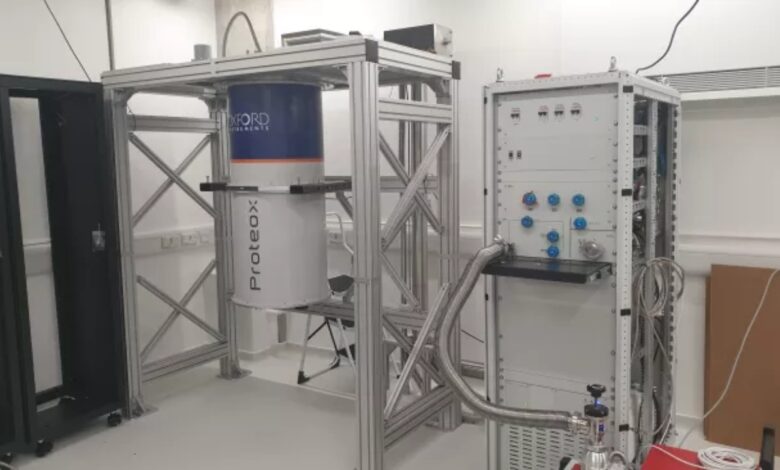Record Cold Quantum Refrigerator Unveiled: A Leap Forward for Reliable Quantum Computing
Researchers from Chalmers University of Technology in Sweden and the University of Maryland in the USA have developed a groundbreaking quantum refrigerator that autonomously cools superconducting qubits to unprecedented low temperatures.

Researchers from Chalmers University of Technology in Sweden and the University of Maryland in the USA have developed a groundbreaking quantum refrigerator that autonomously cools superconducting qubits to unprecedented low temperatures. This innovation, detailed in a recent study, promises to enhance the reliability and efficiency of quantum computers by reducing errors associated with qubit operations.
The new refrigerator achieves temperatures of 22 millikelvin, significantly lower than previous benchmarks which hovered around 40-49 millikelvin. This record-setting cold enables qubits to reach their ground state with an accuracy of 99.97%, offering a substantial advancement in the quest for error-free quantum computations.
Unlike traditional cooling methods that require external energy sources, this quantum refrigerator operates using heat from its environment, making it self-sustaining and potentially easier to integrate into existing quantum systems. The device employs three qubits in a novel manner: one hot qubit absorbs environmental heat, a cold qubit serves as a heat sink, and the target qubit gets cooled, ensuring it starts calculations at the lowest possible energy level.
This breakthrough could be pivotal in scaling up quantum computing systems, as managing thermal noise has been a significant barrier to expanding the number of qubits while maintaining computational integrity. With this new cooling technology, the path to practical, large-scale quantum computers becomes clearer, potentially revolutionizing fields from drug discovery to complex system simulations.
The implications are vast; this technology could lead to quantum computers that require less hardware to correct errors, thus reducing both the cost and complexity of quantum computing infrastructure. As the quantum computing industry continues to innovate, these developments underscore the rapid pace of technological advancement in this field.




